On 10th February Turin woke up in the rain; there could not be more British time for the event scheduled. Monarchical weather by definition. The small square in front of the Cathedral of Turin is armored; the cobbled streets of the historic center of Turin make people converge towards what, for a day, will return to be the heart of the peninsula. At least in the minds of some.
On 3rd February, at the age of 86, His Royal Highness Vittorio Emanuele, Duke of Savoy and pretender to the throne of Italy, passed away. For his funeral, crowned heads are expected from all over Europe, loyal subjects and many curious.
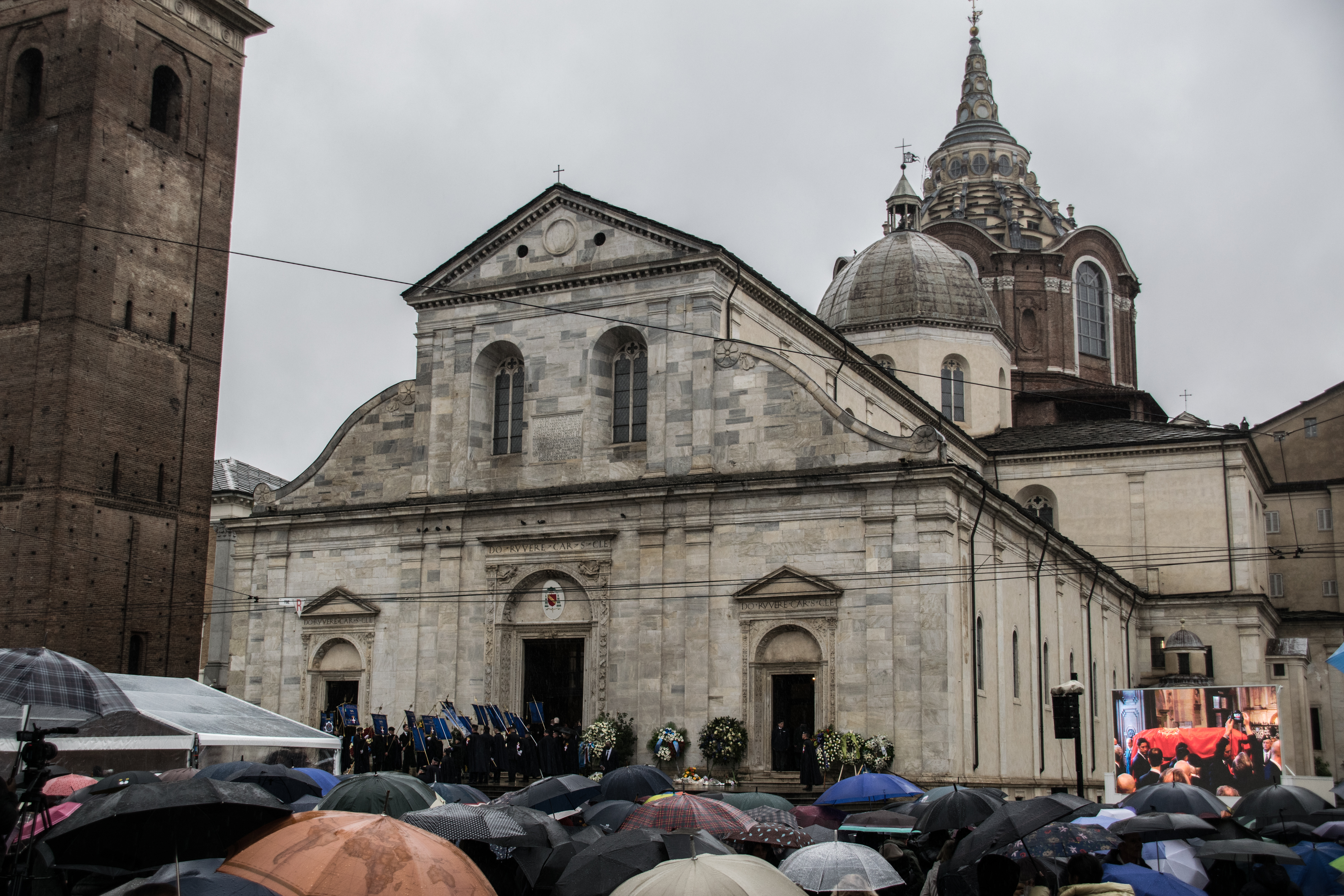
I am greeted by the leaflet of one of the parties of the Italian monarchic galaxy, an outlet against the slander against the "persecuted prince". I ask those who gave it to me what it means to be monarchists today: "Contrary to what you think, you do not look at the past but the present and the future. In many European countries, considered democratic and more efficient, the Heads of State are kings and queens. It is the only form that would guarantee a super partes figure at the Quirinale, which really does the interests of the Italians. The royal family would be the aggregator of citizens, or subjects, the reference point for all Italian families".
Yet even the Savoys had their own family problems, linked to succession: "even a king and a queen are people, they can make mistakes but the validity of the monarchy remains unchanged. The most terrible dictators in history were presidents of a republic, not kings". Tolstoj more current than ever: "all happy families are equal, every unhappy family is unhappy in its own way".
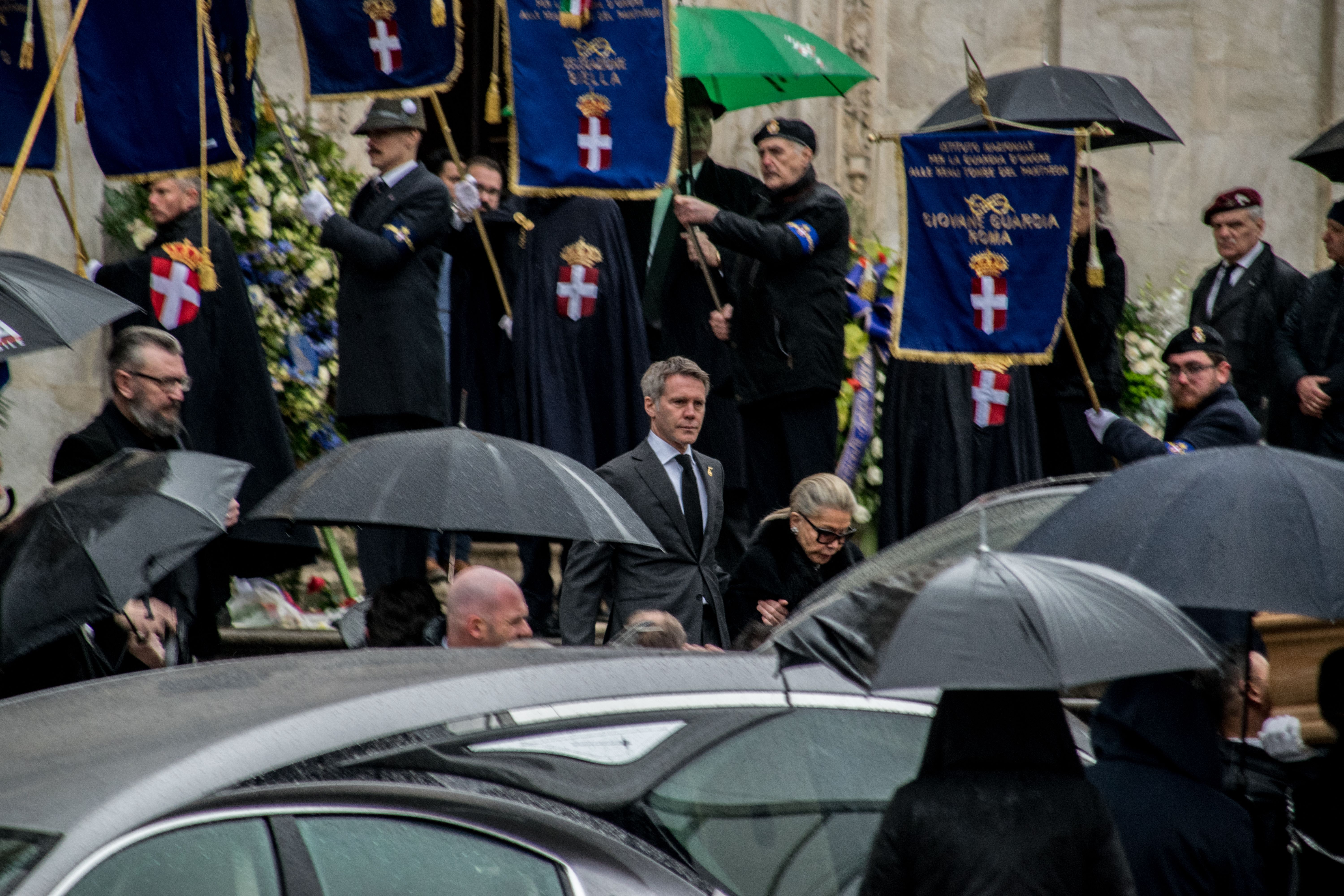
Two friends, a pair of white Hasburgd moustaches each, chat under the umbrella: they came to pay homage to our king, they care about these things, they are passionate about the history of the royal family. To the more Piedmontese of the two I ask if he calls himself a monarchist: "no, but it would not be a catastrophe in Italy: he would steal only one and not many as it happens in Rome. The royals of Europe are more credible, we are represented by clowns".
Two brothers, in their thirties: also fascinated by the monarchical liturgy made of coronations, crossings of dynastic lines and coats of arms. They too were disappointed by an unbelievable political class: the name of the Knight escapes, repeatedly, from the mouths of many in the square. Generations in comparison, so distant and close at the same time: perhaps bitterness and monarchical sentiment do not look at the identity card.
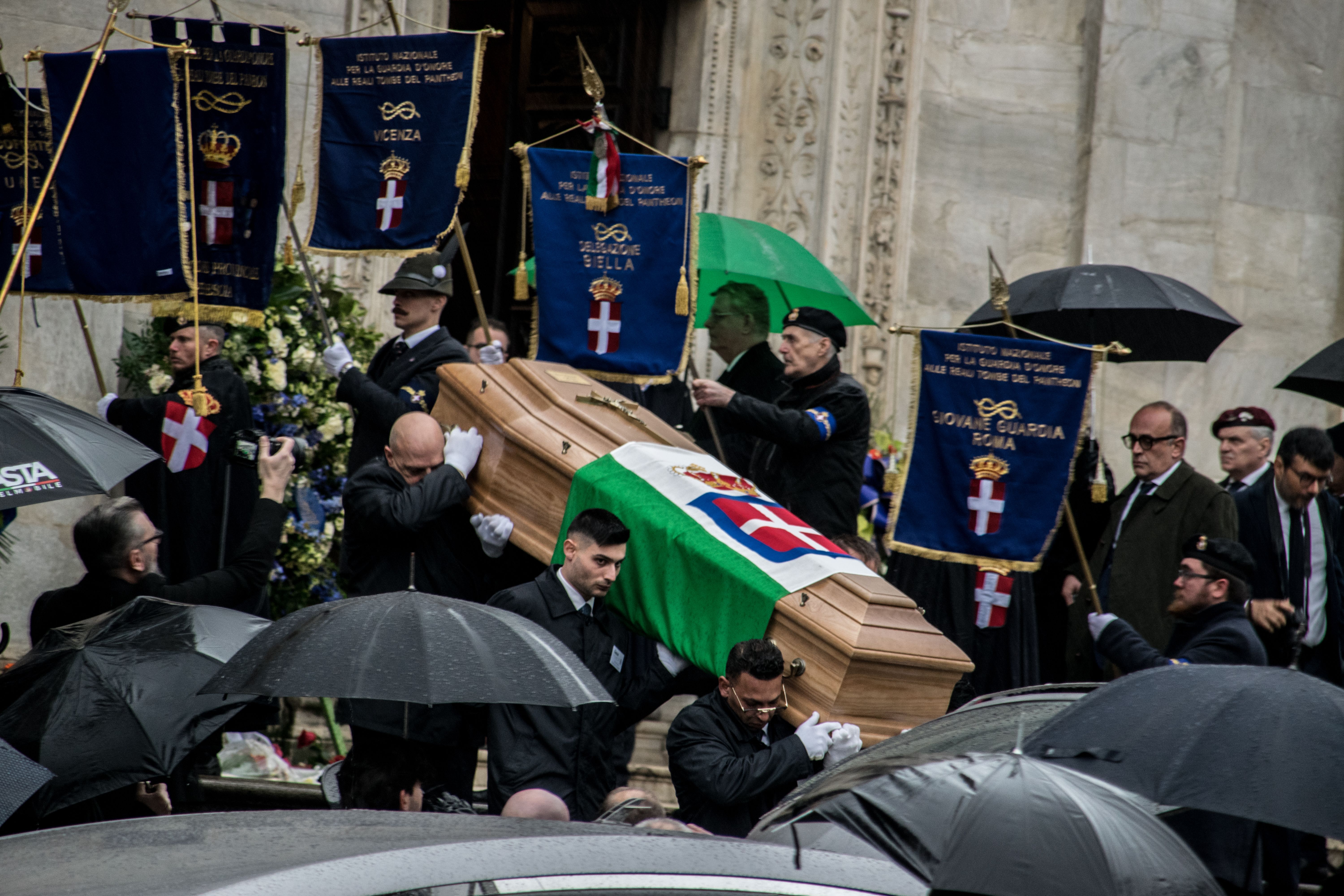
As the coffin with the crowned tricolour resting on it enters the Duomo, one of the two mustached Savoys calls me: "do you see those there, with the cloak and the beret on their head? They are the Guards of Honor at the Royal Tombs of the Pantheon: I have researched myself and they are all lawyers, doctors, people to be taken as a model. Not like the common people who were at the funeral home in Venaria yesterday. I ask him if he went: "obvious!".
The mass has begun, a cloak moves and tries to approach one of the large screens installed for the occasion outside the church: a lady, with beret and badge of the Guards of Honor. For her, being part of it means being the guardian of the history of the House of Savoy, which does not begin with the Unification of Italy. Physically guarding the royal tombs is an honor and a duty. With her I want to write some Fantahistory. On June 2, 2046, 100 years after the referendum, you have the opportunity to re-vote: what would happen?
"I assure you that things would change; many people are tired of some situations that were not there with the monarchy. He made his mistakes, of course: they were made to avoid a civil war though".
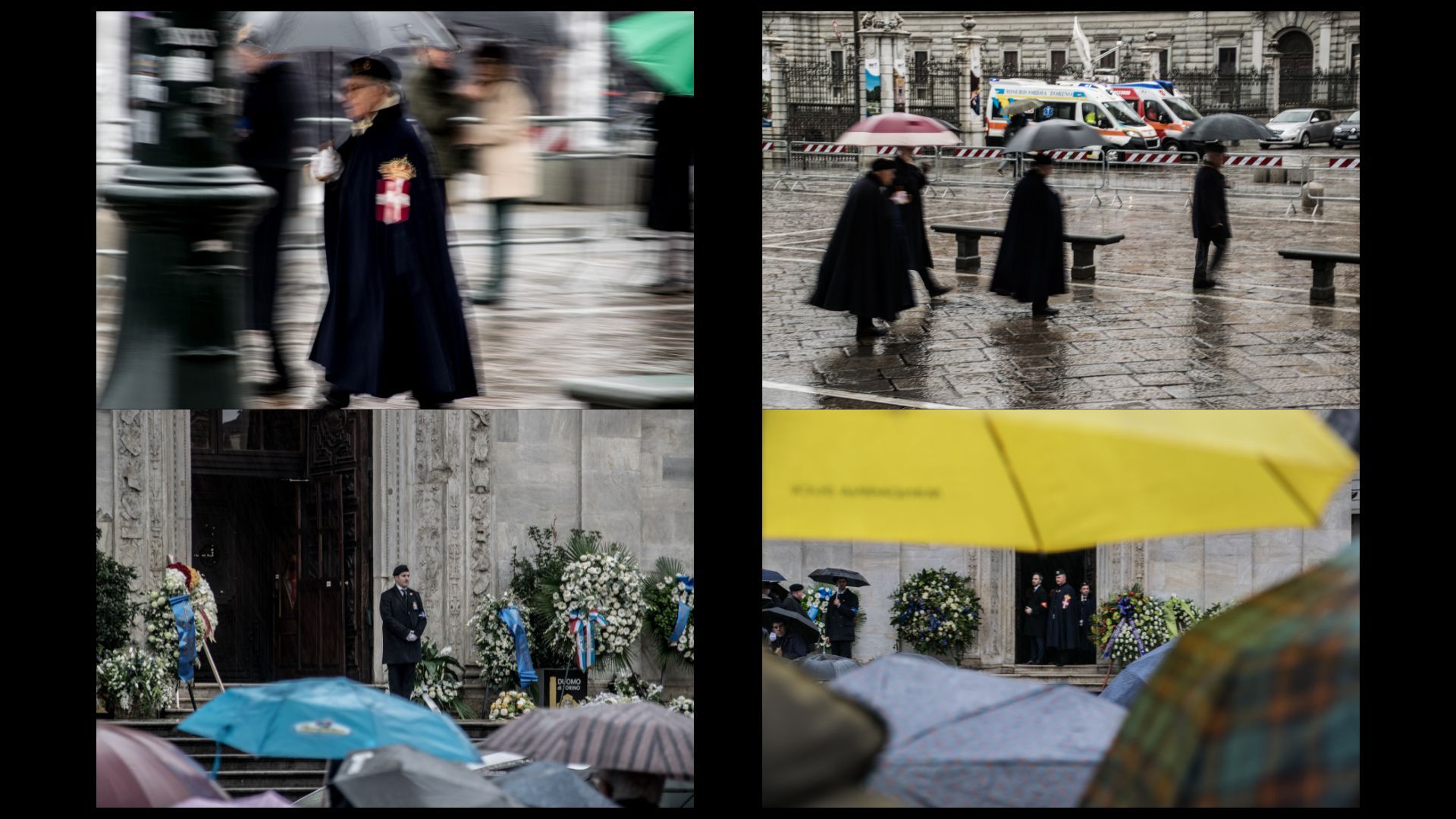
While Monsignor Paolo De Nicolò, prior of the dynastic orders, celebrates the qualities of His Highness, the camera's frame the crowned heads gathered from all over the old continent: Albert of Monaco, Queen Sophia of Spain, Aimone of Savoy-Aosta, royalty of Belgium and Luxembourg. There were also the descendants of Napoleon and the Bourbons of the Two Sicilies: this too seems to be a page of Fantastoria. Many curious came to see them and to participate in a historical event. Between them two girls say they came to the square, curious to see if there was some nostalgic. "It seems to me that many are here for the same reason: I expected more people, even more histrionic, looking for visibility". I also ask them the question of the referendum: "We had the Windsors we would have been in doubt, but we had the most trash royal family in Europe. Not to mention the historical responsibilities linked to the rise of fascism. Absolutely viva la res publica!".

There are also members of monarchist parties that the republic would like to question at the polls. They explain to me that in order to do this it is necessary to amend a paragraph of the Constitution, which prevents the institutional form from changing: without this a new referendum cannot be held.
Who knows how to live as a monarchist in a republic: "you accept it and serve it as you can. That said, trying to change the Constitution does not mean doing a coup or being unconstitutional: the monarchical parties have always been there. I do not think it is the most beautiful in the world, as is often said: if you forbid the citizens to change the institutional form forever, an anti-democratic act takes place".
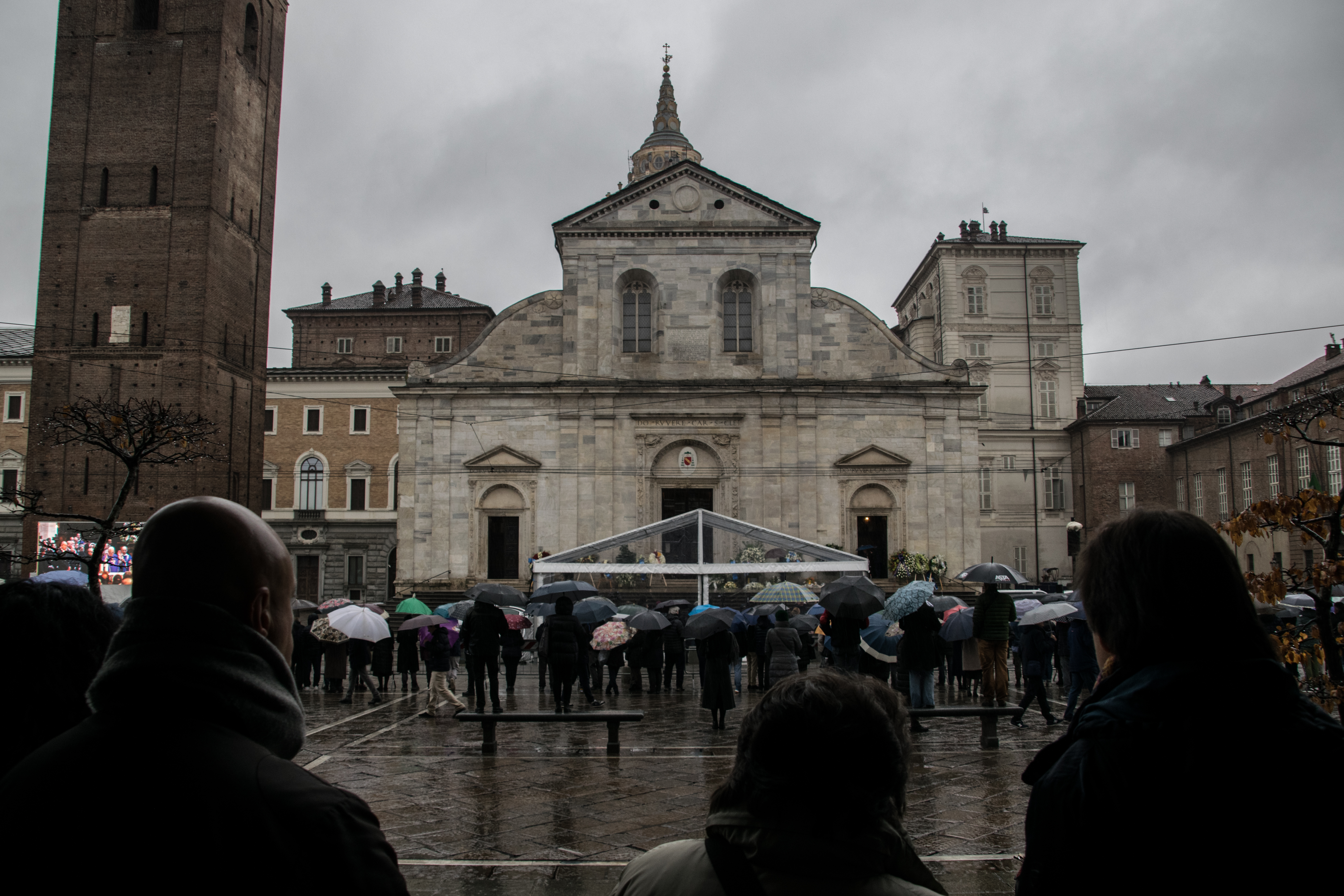
It is a day suspended in time; I have finally grasped the theory of relativity. For many a unique day, a dip in the past with pseudo-theatrical nuances; for others a sad day, which is part of a continuum in which the link with the monarchy has never broken, frozen waiting for a return still so much hoped. None of the people I spoke with were born under the monarchy, yet the frustration with the current state of things is so great that it ignites a search for symbols in which to recognize oneself, for answers in the past.
The function ends, the silence that accompanies the exit of the coffin is broken by a voice and four words: "viva Vittorio Emanuele IV!". But the square is already emptying: all republicans when it rains.
Illustration by Gloria Dozio - Acrimònia Studios
Photos by Federico Ingemi
.jpg)